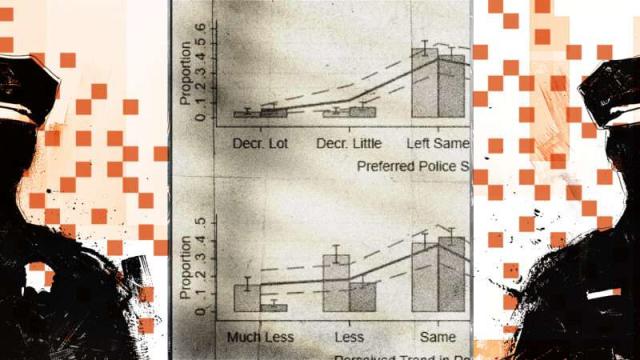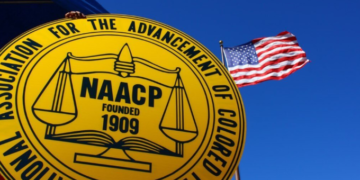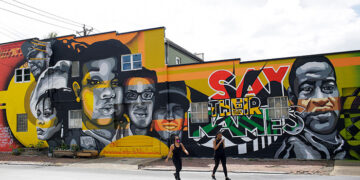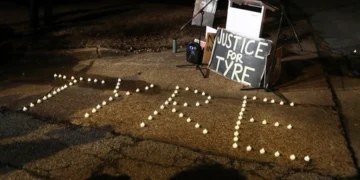Illustration: Lex Villena; Midjourney; Journal of Criminal Justice 92. Img source: Yahoo.com
May 15, 2024 Story by: Publisher
A recent study published in the Journal of Criminal Justice sheds light on the surprising level of support for maintaining or boosting local police presence and funding among Black Americans. Contrary to popular assumptions, this support remains steadfast regardless of changes in crime rates or information about policing reforms. However, negative sentiments toward law enforcement and perceptions of unfair police practices do diminish this support.
The research, led by Linda Balcarová, a PhD student at the School of Criminal Justice at the University at Albany SUNY, aimed to unravel the complexities of public attitudes toward policing, particularly among Black Americans. Despite documented fears and mistrust of law enforcement, a substantial portion of Black individuals expressed a preference for robust police presence and funding in their communities.
“Our interest in this subject stemmed from the apparent contradiction revealed in opinion polls: while Black Americans report a significantly higher fear of police compared to their White counterparts, indicating widespread apprehension about potential mistreatment, they still appear to advocate for maintaining or increasing police presence and spending locally,” explained Balcarová. Source: Psypost.org
The study, conducted through an experimental approach with data collected by YouGov, included 1,100 participants, both Black and non-Black Americans, selected to provide a diverse representation of the U.S. population. Participants were presented with different scenarios related to crime trends and policing reforms before answering survey questions.
Results indicated that the majority of respondents, regardless of race, favored maintaining or increasing police presence and funding. However, while White respondents’ preferences were influenced by contextual information about crime and policing reforms, Black respondents’ attitudes remained robust and relatively unaffected by such factors.
Interestingly, Black individuals’ support for policing was found to be influenced by factors such as personal experiences with law enforcement, perceptions of procedural justice, and age. Those with positive views of police behavior and those who felt a sense of fear regarding crime tended to support increased police presence.
The study underscores the importance of addressing civilian fear of law enforcement and improving police-community relations through measures such as procedural justice training and accountability reforms. By addressing these concerns, support for local police among all Americans, including Black individuals, could significantly increase.
While the study provides valuable insights, its reliance on self-reported data and experimental manipulations presents limitations. Future research endeavors could explore more nuanced models of opinion formation and delve into qualitative research to gain deeper insights into individual experiences and narratives shaping attitudes toward policing.
Ultimately, the study emphasizes the need for ongoing efforts to enhance policing practices and alleviate public concerns about police conduct, particularly among marginalized communities.
The study, titled “On the Robustness of Black Americans’ Support for the Police: Evidence From a National Experiment,” was authored by Linda Balcarová, Justin T. Pickett, Amanda Graham, Sean Patrick Roche, and Francis T. Cullen.

















